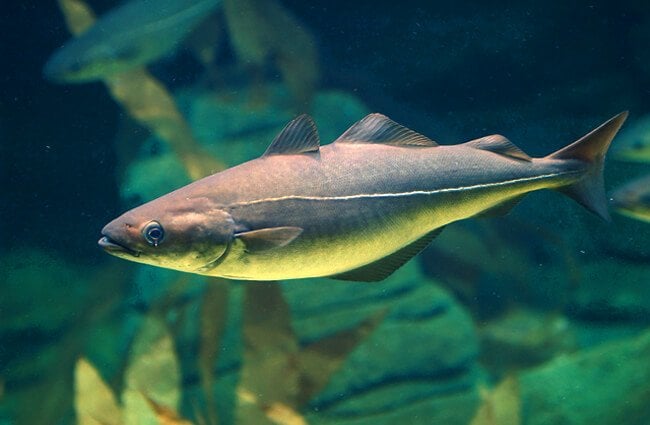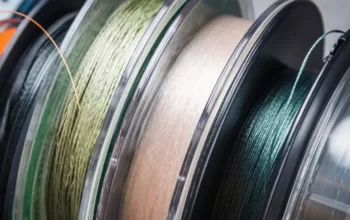Ready want to fish a pollock? What is pollock? Where are pollocks found? What should I look for when buying pollock? Don’t worry, I will answer all the questions in the post.
Pollock or pollack is a common name for either of the two species of North Atlantic marine fish in the genus Pollachius. Pollock, known as white fish, is the most commonly used fish in McDonald’s filet sandwiches, fish bars, fish bars, and other bread and fried fish products. Cod is the most important prey species in the Bering Sea and the Gulf of Alaska, providing food for seals, endangered tiger head sea lions, seabirds, and fish.
Please read on.
Table of Contents
Where Are Pollock Found?
Pollock is commonly found in the colder northern waters ranging from Along with the seas of China, Japan, and Russia, California to Alaska is included. The Bering Sea, the Gulf of Alaska, and Russia’s Sea of Okhotsk are where most pollock that is sold commercially can be found.
Due to the fact that pollock is never farmed, all of it is wild caught. Since it is managed and harvested ethically in accordance with US regulations, it is a great option for anyone concerned about sustainability. Pollock numbers are higher than desired levels, and the recommended amount of fishing for this species continues. Bycatch, or the accidental capture of other species while fishing for pollock, occurs in less than 1% of all fishing operations.
When is Pollock in Season?
The season is divided into two parts for pollock caught in the Gulf of Alaska and the Bering Sea. “A” season begins in late begins in January and lasts until April. During this time, roughly 45% of the U.S. annual quota is available. is caught. “B” season runs from mid-between June and October 31.
Pollock is typically sold all year long, despite the established fishing season. Pollock that has been frozen is constantly available. Finding fresh (never frozen) pollock might be a little harder.
What Should I Look for When Buying Pollock?
You’ll have a lot of options when buying pollock at the grocery store because it’s such a popular fish. In addition to being frequently found in both previously frozen and frozen fillets, you can also find pollock that has been breaded or battered and that has been topped with a variety of herbs and seasonings in the freezer section. In addition to prepared fillets, you can also sometimes get your hands on whole pollock.
Look for fillets with a firm texture to ensure that the pollock you’re purchasing is fresh. They should “bounce back” after you touch them. Fresh pollock also should not have a “fishy” smell. It should instead smell mildly briny, like the ocean. When purchasing pollock that has been frozen, make sure the packaging is complete and the fish is completely frozen. Pollock fillets that have been frozen shouldn’t budge. You can also check the “best by” date on the packaging. If you intend to keep it in the freezer for a while, this is especially crucial.
You can easily order any kind of pollock through Instacart if you’re planning to have your groceries delivered. After adding a product to your cart, use the “Instructions” option to notify your Ask an Instacart customer about any preferences or detailed instructions on how to pick the best products.

How to Store Pollock?
As you transport fresh pollock from the store to your house, keep it as cold as you can. It’s a good idea to take it out of the packaging when you get home and put it in a tightly closed freezer bag. Place the bag in a colander after pressing out all the air. In your refrigerator, preferably in the coldest part (typically the bottom drawer), put the colander in a bowl with ice. Then close the door. The fish will remain fresh for about two days if stored in this manner.
You should put it in an airtight bag and freeze it if you can’t cook it within two days. Pollock can be stored properly in the freezer for approximately nine months. After that, you can still eat it, but the quality will start to decline.
Pollock should be kept frozen until you’re ready to cook it. After that, you should let it thaw overnight in the refrigerator before cooking it. Pollock should not be frozen again after thawing.
How to Tell If Pollock is Bad?
You’ll probably notice the smell first if the pollock has gone bad. Pollock that has spoiled will often have a “fishy” smell, a “sour” smell, or smell like ammonia. In addition, the flesh might start to look cloudy, get soft or “mushy,” and/or get “slimy.” If you notice any change in color or texture or an “off” smell, it’s best to discard the fish. Watch out for freezer burn when removing pollock from the freezer. Ice crystals on the fish’s flesh are a typical sign of this. Even though you can still eat fish that has freezer burn, the flavor and texture might not be the best.
Health Benefits of Pollock
Pollock offers a variety of health advantages because it is nutrient-rich. Some of them include:
Good Heart Health
Just like most fish, the minerals found in pollock have a positive impact on your blood pressure and circulation and reduce your risk of developing heart disease. There are countless ways to incorporate these nutrients into your diet given the variety of seafood preparation techniques and recipes available.
Anti-inflammatory Effects
Some of the pollock fish’s unsaturated fats, such as omega-3 fatty acids, are known to be anti-inflammatory and can enhance the condition of your skin and digestive system.
Weight Loss
Pollock has fewer calories than the majority of fish and other protein sources. Only 92 calories are contained in 100 grams of pollock. Additionally, you’ll be able to lower your risk of coronary heart disease because of its low cholesterol levels.
Increased Fertility
Excellent for reproductive health is pollock fish. Because it has a positive impact on the body’s metabolic processes and hormone production, it is known to increase fertility.
Pregnancy Nutrition
It’s crucial to comprehend the regulations regarding seafood consumption while pregnant. The development of your baby may benefit from eating pollock, which is a great source of iron and zinc. The development of your baby’s brain can also be aided by omega-3 fatty acids. Pollock is a healthy choice for pregnant women and low in mercury. However, if you’re expecting, fish should always be cooked thoroughly.
Hair Health
The body heavily depends on vitamin B for everything from metabolism regulation to hair strength. You should include pollock fish in your diet if you struggle with dandruff, hair loss, or split ends.
Overall Brain Health
A lack of phosphorus can cause cognitive functions to be disrupted because it aids in controlling neurological responses. A deficiency in vitamin B, which is present in pollock fish, is frequently linked to cognitive problems or poor memory. The B vitamins have also been linked to a decreased risk of dementia, depression, and insomnia. Omega-3 fatty acids have also been widely shown to support mental and brain health.
Reduced Cancer Risk
Pollock can be categorized as a food that fights cancer because of the nutrients it contains. Selenium aids in the repair of cells that have been harmed by the growth of cancer. Additionally, it has been discovered to stop the spread of prostate cancer in particular.
Since free radicals can damage cells and cause cancer, vitamin B2 functions as an antioxidant and helps to stop this from happening. Additionally, this vitamin supports the health of the lining of your digestive tract, a crucial component of your immune system.
Without proper regulation, your body is unable to absorb the nutrients you consume, which could also be linked to the development of colorectal cancer. B2 has been discovered to aid in the prevention of colorectal cancer in females.
Is Alaskan Pollock Fish Good for You?
Are you looking to fish for health? Adding foods that promote wellness and fend off serious medical conditions to your diet is crucial in the modern era due to the rapidly rising cost of healthcare. There are numerous pollock health advantages that support including it in your regular diet. Before we do, let’s look at a few pollock fish facts. We will look at those advantages later.




